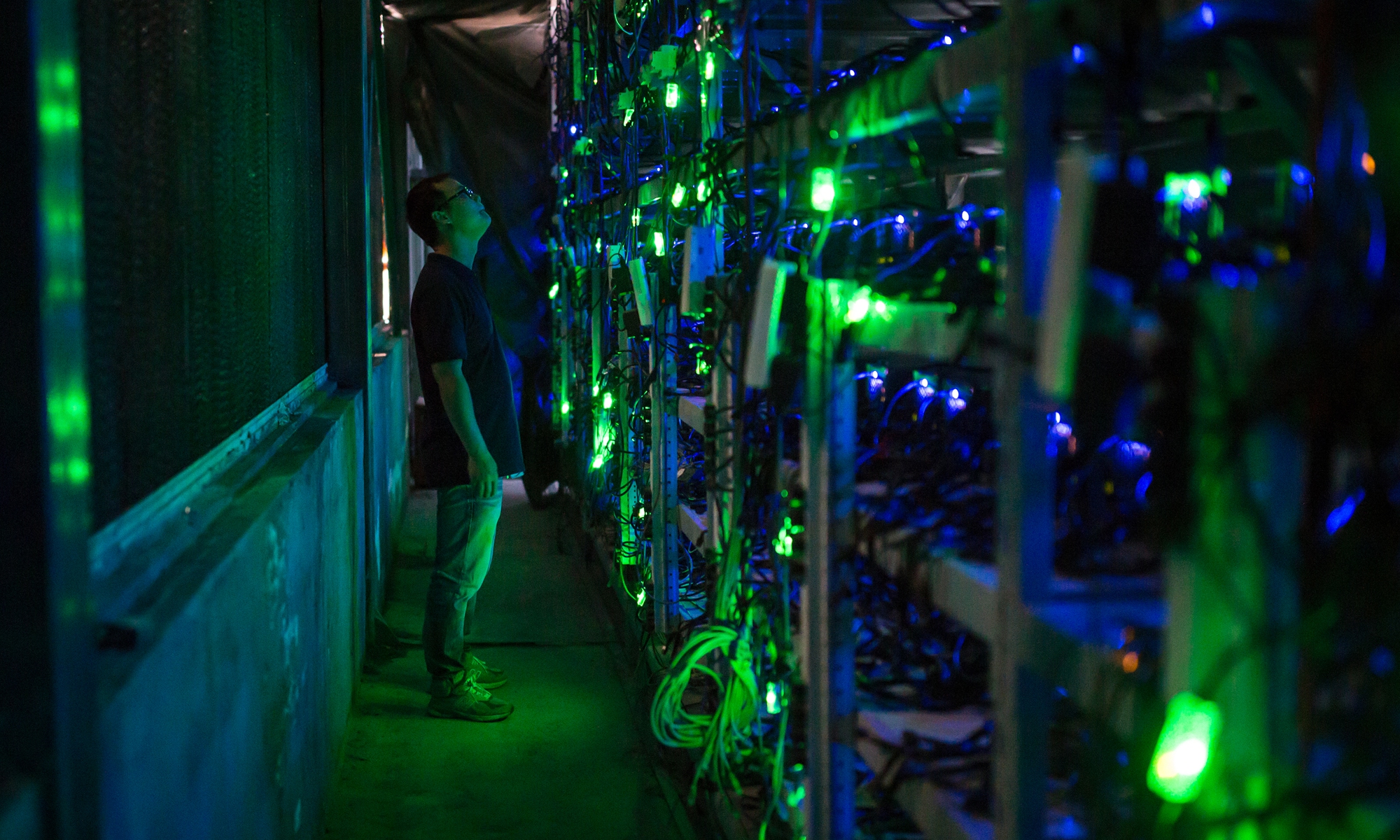Chinese provinces further crack down on virtual currency mining with differential electricity prices as punitive measures

A worker checks on Bitcoin mining equipment at a facility in the Garze Tibetan Autonomous Prefecture, Southwest China's Sichuan Province in 2019. File photo: VCG
The latest example was the economic planner of East China's Shandong Province, which released a draft on differential electricity price policy for virtual currency mining, following several other provinces.
According to the draft of Shandong Development and Reform Commission released on Thursday, for virtual currency mining, the province plans to increase 2 yuan ($0.32) per kilowatt-hour (kWh), including tax, on normal electricity price.
East China's Zhejiang Province has added 0.50 yuan per kWh on power price for virtual currency mining, North China's Inner Mongolia Auton¬omous Region added 1 yuan per kWh, and South China's Hainan added 0.80 yuan per kWh.
Analysts said such policies are further crackdowns on virtual currency mining enterprises that have not been closed yet.
"Virtual currency mining consumes huge amounts of electricity, which runs counter to the goal of carbon neutrality. At the same time, virtual currency mining and trading seriously disrupt economic and financial order. Virtual currency mining activities have been listed as an industry to be eliminated by China," said electricity industry insider.
The Zhejiang provincial government said that virtual currency mining is still banned. The differential power price policy is a supporting punitive measure, which means that the investigated enterprise needs to pay the additional electricity charges for the period of illegal act of virtual currency mining, China Times reported on Tuesday.
On January 10, the National Development and Reform Commission released a guidance catalogue for industrial restructuring, in which the elimination category of backward production technology and equipment included "virtual currency mining."
According to the guidance, investment in industries listed as being eliminated will be banned and existing activities will be eliminated within a time limit.
Industry insider said that the implementation of differential electricity prices is conducive to the orderly exit of virtual currency mining enterprises, and that high electricity prices will further crack down remaining mining activities.
Virtual currency mining is a huge consumer of electricity and enterprises were located in provinces with lower electricity prices before China vowed to crack down on the industry.
On October 8, 2021, a work report from the Jiangsu Provincial Communications Administration concluded that virtual currency mining consumed about 260,000 kWh of electricity per day.
East China's Jiangsu has not been a major mining province for virtual currencies in China.
And according to a report by Xinhua News Agency in May 2021, some mining enterprises can consume millions of kWh of electricity every day.
Global Times



